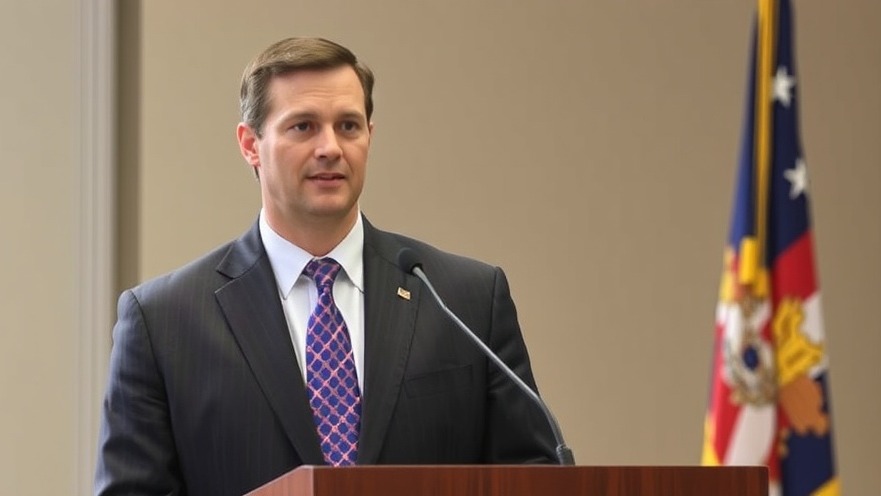
Brandon Creighton's Ascent: The Man Behind the Policy Changes
The political landscape of Texas has always been dynamic, and with State Senator Brandon Creighton positioned to become the chancellor of the Texas Tech University System, we witness a new chapter in the ongoing dialogue about higher education in the state. His legislative record showcases significant measures aimed at reshaping the academic environment, including the controversial ban on diversity, equity, and inclusion (DEI) programs. It raises questions about the potential directions for Texas Tech under his leadership and the broader implications for higher education statewide.
The Legislative Landscape: Shifts in Academic Control
Over the past few years, Creighton's impact on Texas's higher education legislation cannot be overstated. He spearheaded Senate Bill 17, which dismantles diversity initiatives in public universities, thereby redefining institutional priorities. Additionally, Senate Bill 37 empowers governors to appoint regents with expansive control over university administration, minimizing faculty influence. Such measures have catalyzed a drastic shift in governance, which traditionally valued faculty autonomy. The Texas Conference of American Association of University Professors has raised alarms about the future of academic freedom and governance, emphasizing concerns regarding shared decision-making processes within institutions.
A Community Divided: The Response From Texas Tech
Mixed sentiments surround Creighton's anticipated appointment. While supporters like Texas Tech Board Chair Cody Campbell commend his alignment with Texas Tech's values and vision, critics like faculty members fear that changes in governance may undermine academic integrity. This juxtaposition illustrates a community grappling with the implications of his policy changes. Can a balance be struck that preserves both the educational integrity of universities and the governing ideologies endorsed by the state? As the discussion evolves, the fate of Texas Tech's traditions of shared governance and academic freedom hangs in the balance.
Looking Ahead: Challenges and Opportunities for Texas Tech
As Creighton steps into this influential role, several key considerations will shape Texas Tech's future. Primarily, how will the institution manage to advance its academic goals while adhering to the new legislative framework? Stakeholders will need to navigate these uncharted waters carefully. Moreover, Texas's unique socio-political fabric demands a thoughtful examination of how policies affect not just students but the broader communities that universities serve.
Why This Matters to Texans
The implications of Creighton's appointment extend beyond the university walls. As Texas continues to grapple with economic challenges, education becomes a pivotal topic. The decisions made at Texas Tech will influence educational access, faculty recruitment, and ultimately, the quality of education provided to students. For many residents, these developments can herald a new era of educational focus—or, conversely, a detriment to the state's academic future.
Engaging with Education Reform: What You Can Do
Citizens are encouraged to engage in discussions about these legislative shifts. Attend local forums, reach out to university officials, and advocate for policies that prioritize not only governance but the integrity and accessibility of education amid changing laws. Taking an active role in these conversations empowers residents to influence the educational landscape in Texas.
In conclusion, as Brandon Creighton prepares for his role as chancellor, his decisions will undoubtedly affect not just the university, but also the fabric of Texas higher education. Understanding these shifts and participating in discussions surrounding them is vital for stakeholders across the state, ensuring that the voice of the community resonates through these changes.
 Add Element
Add Element  Add Row
Add Row 



Write A Comment